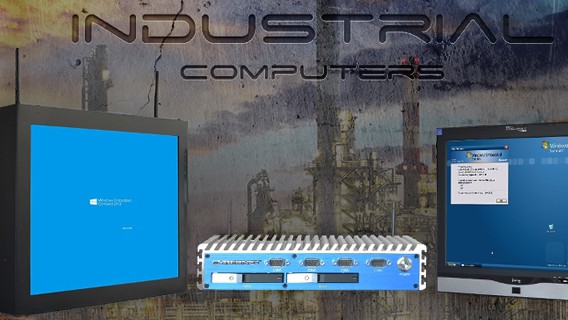Technological advancements have led us to areas we have never had access to before, such as horizontal drilling in the Bakken region. Conventional drilling techniques have only been able to extract a fraction of the available crude. Producers flock to newly available areas that provide the oil and gas extraction. As technology creates new business in the oil and gas industry, computing systems must keep up to support these harsh environmental activities.
The substantial growth in unconventional oil sources like shale deposits, subsea deposits, and oil sands has created a much more complex system. The technology that supports these efforts must be more advanced as well. For example, oil extraction produces massive amounts of data that must be reviewed in order to prevent a rig from shutting down. Field staff members need to connect with experts so they can make critical decisions based on the evaluation of easily accessed data in real time.
Whether collecting and reviewing data or automating processes, computer systems need to be able to withstand the harsh environmental conditions. High-end, rugged industrial computers are now available to accommodate the needs of the oil and gas industry.
The Need for Rugged Systems
The computing industry has made immense progress for accommodating the processes and systems that are newly connected to the oil field. There are new advancements in computers that improve equipment control and data processing. Developers now face new challenges for design and performance. Additionally, the must be able to perform reliably while handling harsh conditions like extreme desert heat and below freezing temperatures.
When it comes to embedded system design, the oil and gas industry requires some of the most demanding and complex systems. They require optimization for reliability and mean time between failures (MTBF). Avoiding downtime is critical in most embedded environments, especially in the oil and gas industry. System failures cause downtime in oil production, resulting in significant losses.
This is an especially big problem when drill sites are located in remote sites, requiring more resources and time when systems go down. In-field operational costs are greatly reduced with reliable, rugged systems. Computer systems designed for the oil and gas industry ideally include specific design features, uninterrupted supply lines, and support readily available. Time and money can be saved when debugging of a system can be done remotely with a connected system.
Most computer systems are built to withstand the traditional office setting; however, oil and gas office settings are much different. Command centers consist of temporary structures filled with contaminants like dust. The command centers are on location in close proximity to pump systems and drilling platforms. Computing systems are transported by vehicles, so being shockproof and vibration resistant are important factors in the design of a rugged system.
Due to environments much harsher than traditional office settings, computing systems have been developed specifically for the oil and gas industry. Capabilities and new features have been created, such as eliminating dirt entering systems with removable dust filters. Shock and vibration are now reduced with hold-down brackets for I/O, expansion cords, and cable tie downs. Operating near a source of constant, heavy vibrations is no longer an issue. Systems are protected during transport with shock-mounted drive bays adding stiffness in the chassis design. There are many features and designs created for computing systems in the oil and gas industry.
Choosing the Right System
With so many technological advances in computing systems, which one is best? Not all industrial computers are created equally so it’s important to choose the right system for oil and gas operations. Here are the three most important qualities to look for in an industrial computer system:
- Tough Design – An ideal rugged, industrial system can manage dust and temperature extremes, meet shock and vibration considerations, be optimized for connectivity and computing power, and ensure reliable and long-term performance that is required for oil and gas installations.
- Low Maintenance and Long Life – A developer with global service presence is critical for oil and gas installations, providing the necessary support to meet the goal of maximum system uptime. They provide this vital support and require minimal field manage maintenance. A system should be supported by the manufacturer and in-field maintenance made easy. It should have a long-term availability of components for continued performance and guaranteed longevity.
- Technical Support – Ideally, system support will be available in the region where the system is deployed. There are only a few manufacturers with global presence for both design and manufacturing. This is important due to the complexity and global nature of oil and gas companies. Advanced systems make a difference in oil production by connecting with critical data with people around the world, improving productivity and safety of operations.
Additionally, experts in embedded computing solutions provide engineering resources and share knowledge of computing platforms to ensure the systems’ faster deployments. Global technical support substantially reduces downtime.
Due to the new technological advances in drilling and access to more remote areas, rugged systems are necessary now more than ever. Previously undrilled areas are now accessible and enabled with the assistance of new computing technology. Systems must adapt to these changes and withstand the harsh environments. The demands for high MTBF, higher performance, extended product lifetime, and reliability are met with the right system.
Check out these fully customizable, rugged industrial computers>>>>
Industrial Computing: Changes in the Oil and Gas Industry
September 8, 2015
The field of industrial computing has evolved to such a degree that the devices that are currently available transform the very industries that they are deployed in. There are a number of computers suitable for a…
0 Comments6 Minutes
How Industry 4.0 Will Change the Oil and Gas Industry
April 1, 2021
As it has on every other industry, the COVID-19 pandemic has had a marked impact on the Oil and Gas Industry. Already trending downward before the virus, worldwide public health lockdowns caused oil consumption to…
0 Comments10 Minutes
You Can't
Learn from a Pop-up
But we can deliver knowledge to your inbox!
We dive deep in the industry looking for new trends, technology, news, and updates. We're happy to share them with you.
Knowledge, News, and Industry Updates Right in Your Inbox




